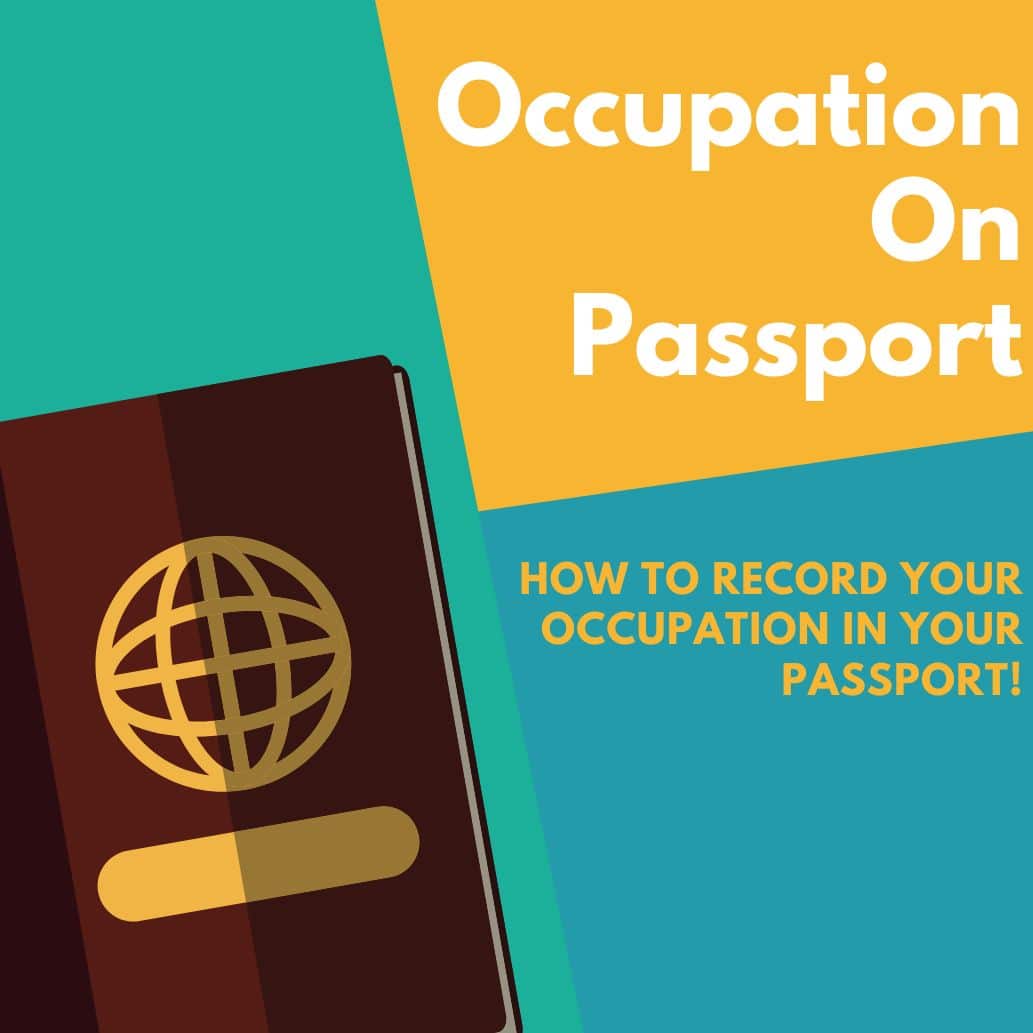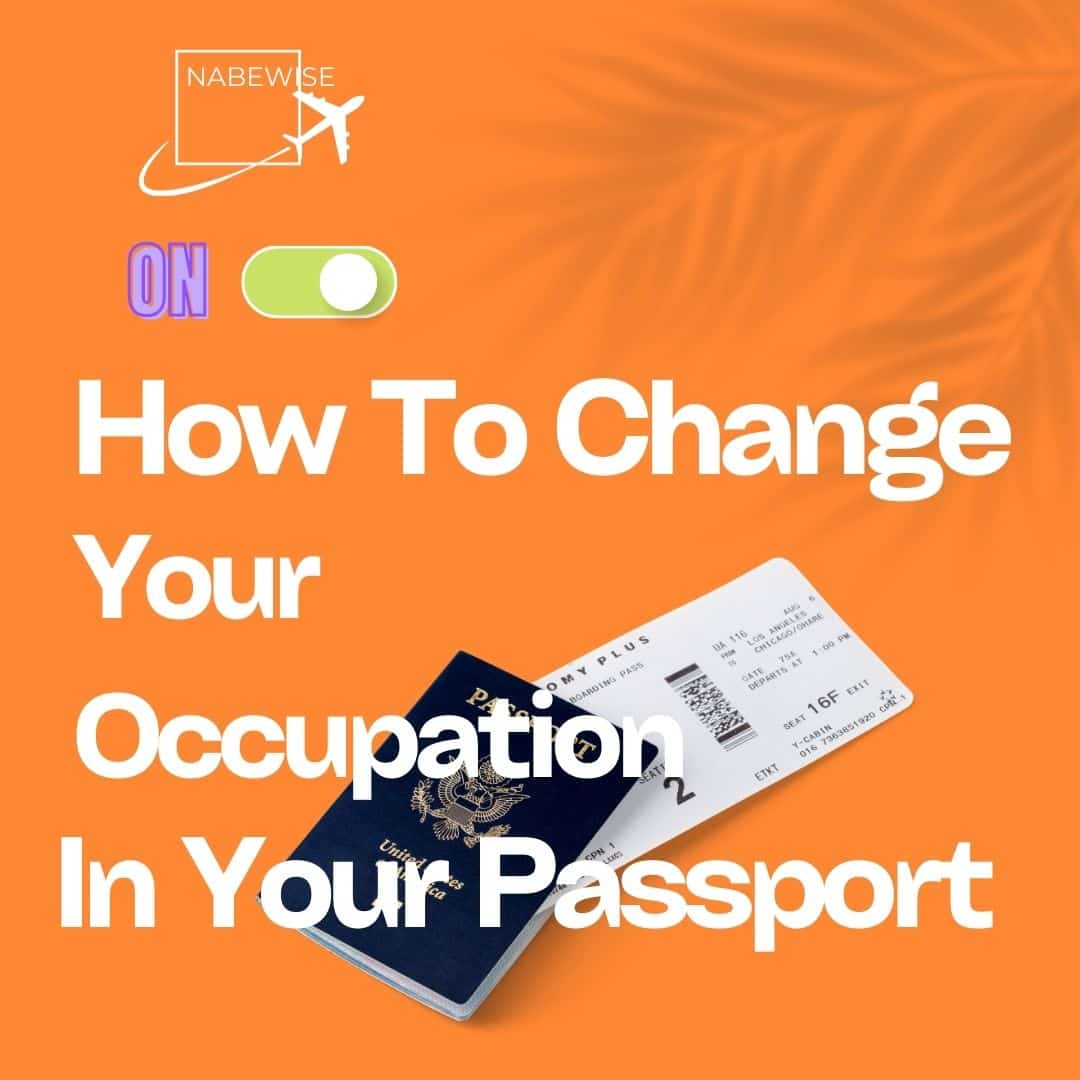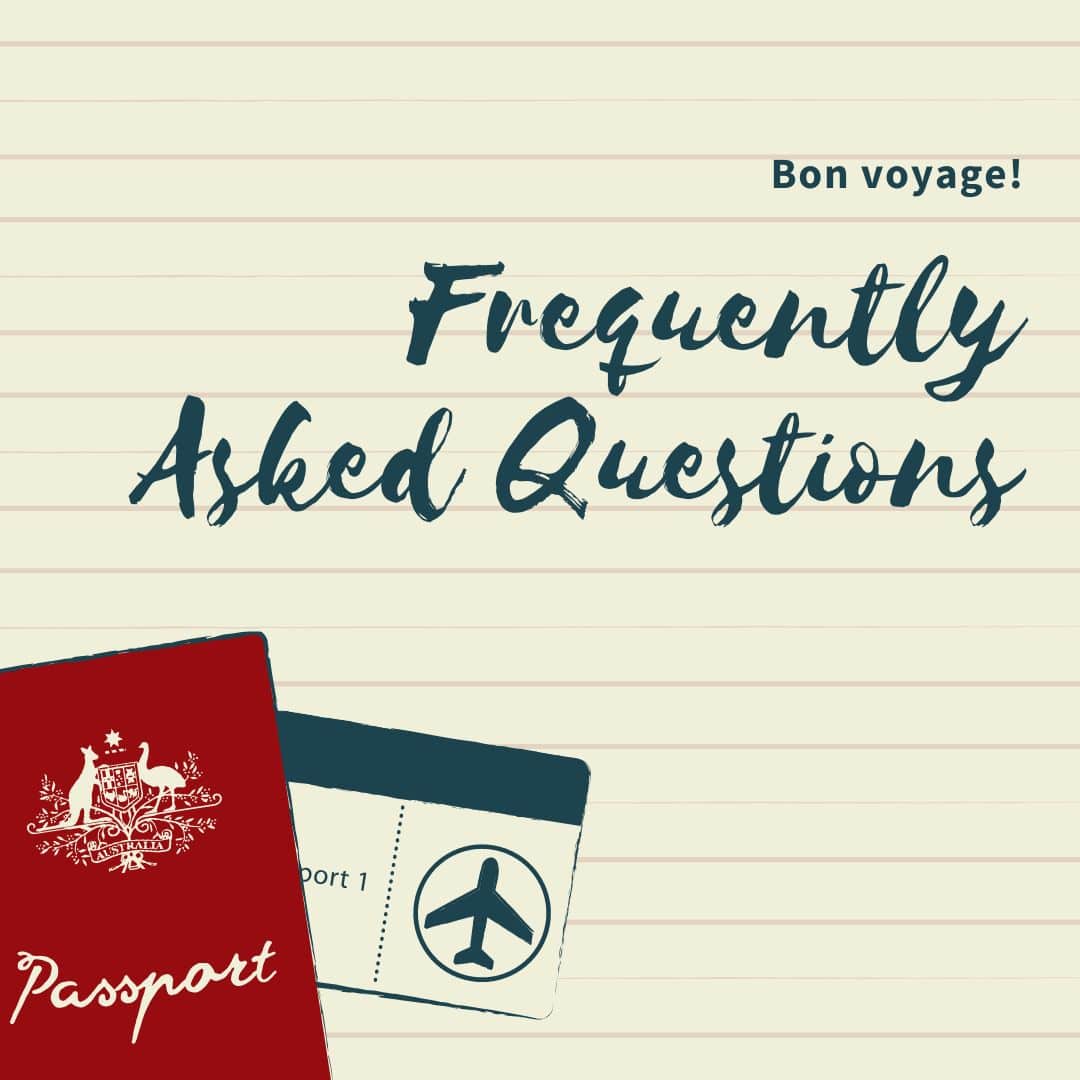
Occupation On Passport
by Nabewise
Passports are essential documents that allow us to travel abroad and explore the world. As citizens of a country we must have our occupation listed on our passport in order to explain the purpose of our travels. Unfortunately not everyone has the same freedom when it comes to deciding what exactly should be written down as their profession.
It's time for us to take control over our passports and make sure they accurately reflect who we really are! After all it is a personal document that serves as proof of identity and nationality. Whether you're an artist entrepreneur or anything else – your passport should represent you properly.
In this article I'm going to discuss why having an accurate description of yourself on your passport is so important how it can affect your travel experience and what you need to do if yours doesn't match up with reality. Let's get started!
Table of Contents
Types Of Passports
When it comes to travel having the right passport can make all the difference. A passport is a government-issued document that states your identity and citizenship and allows you to cross borders into other countries. There are several types of passports available for travelers depending on their occupation or purpose of travel.
The most common type of passport is a traditional tourist passport which grants access to foreign nations for short periods of time. This kind of passport usually has an expiration date attached to it so travelers must stay up-to-date with renewals if they plan to continue using it. Business passports are similar but provide more benefits and allow longer stays in certain countries; these are typically issued by employers who send employees abroad on company business. Diplomatic passports grant special privileges such as diplomatic immunity and unrestricted entry into some countries; these are only given out to high ranking officials like ambassadors and consuls. Finally there are also official passports which provide additional protection when traveling abroad on behalf of one's home country’s government.
All these different types of documents come with unique advantages allowing travelers from all walks of life the opportunity to explore the world around them without fear or hesitation. But before any journey begins it's important to understand what role ‘occupation' plays in obtaining a valid passport…
What Is An Occupation?
Occupation is an important factor when it comes to obtaining a valid passport. It can determine which type of document you’ll need and what privileges you may be granted while traveling abroad. So what exactly is occupation?
In the most basic sense occupation refers to the job or profession that someone has. This could include anything from being self-employed employed by a company retired etc. Depending on the country in which you are applying for your passport there may be specific requirements regarding your occupation status that must be met before approval can be given. For instance some countries require proof of employment such as pay stubs or other documents showing current income; others might have more relaxed restrictions and allow individuals who do not have formal employment to apply for passports.
No matter where you live or how much money you make understanding your own occupational status will help ensure that the application process runs smoothly and quickly so that nothing stands in the way of fulfilling your travel dreams!
How To Record Your Occupation In Your Passport
Recording your occupation in a passport can be both exciting and intimidating. After all this information will determine what type of document you receive as well as the privileges that come with it! Fortunately the process is relatively straightforward and easy to navigate.
First make sure to have any official documents handy that confirm or detail your current employment status (e.g. pay stubs). Depending on where you are applying for the passport from some countries may require more specific evidence than others; however having these materials ready beforehand can save time during the application process. Additionally if you are self-employed or retired make sure to provide proof of income or other applicable records when asked.
Once everything is gathered together correctly and accurately documented in the form provided by your local embassy or consulate office simply submit it along with any other required paperwork – like photographs – and wait for approval. The entire process should take no longer than 10 days after submitting all necessary documents. With a little bit of patience and preparation upfront though obtaining a valid passport with an accurate representation of your profession has never been easier!
What If You Don't Have A Specific Job Title?
At times you may find yourself in a situation where you don't have a specific job title to put down on your passport application. Don’t worry – there are still plenty of options! Take the “unemployed” category for example; if this is true for you then simply state it as such and provide any documents that prove your current financial status (e.g. bank statements). For those who work freelance or contract jobs with no set hours write “self-employed” along with proof of income from clients or contracts.
No matter what circumstances you find yourself in make sure to be honest when filling out your passport application – not only because it's important for security purposes but also because it could ultimately save time (and frustration) during the approval process later on. Plus it will help ensure that you get the right type of document based on your profession at the time of application.
That being said it pays off tremendously to research and know the exact requirements of different countries before applying for a passport – particularly if they differ significantly from yours. This way you can have all necessary paperwork prepared ahead of time and avoid potential delays further down the line due to incorrect information or missing documents.
Requirements For Different Countries
Now that you understand the importance of being honest on your passport application and researching requirements beforehand let’s take a look at some of the different regulations out there. Depending on where you're trying to travel certain countries may require additional paperwork or proof of work in order to obtain a valid document – so it pays off immensely to be aware of these restrictions ahead of time. For example if you're looking to visit Canada for leisure purposes then their government requires all applicants to provide either an employment letter from their employer or proof of self-employment income (such as bank statements).
In addition those with dual citizenship need to pay special attention when traveling abroad – especially if they are carrying passports from two separate nations. In this case many countries will ask travelers which one is their ‘primary' nationality before allowing them entry into the country. Therefore having knowledge about both nationalities’ rules can prevent any unnecessary delays during customs check-in procedures.
No matter how complicated things might seem right now understanding specific regulations ahead of time could save lots of headaches down the line. So make sure to do your research thoroughly and prepare accordingly!

How To Change Your Occupation In Your Passport
Have you ever wished you could change your occupation on your passport? While it may seem like a daunting task there is actually an easy process to follow. With just a few steps and some extra paperwork anyone can make this update successfully! Here’s what you need to do:
• Gather all the necessary documents that prove your new job title or profession. These might include pay stubs tax records work contracts etc.
• Fill out the renewal form for your passport with accurate information about yourself and your current position. Make sure to double-check these details before submitting them!
• Submit the application along with any additional documentation needed for processing and wait for approval from the government agency responsible for issuing passports in your region.
• Once everything has been verified and accepted you will receive a new passport reflecting your updated occupation within 4-6 weeks of submission.
Eager to start exploring the world as someone with a different job description? You're not alone – many people see travel as an opportunity to escape their everyday life and explore something new – while also making amazing memories along the way. But remember when embarking on such adventures abroad having up-to-date information on your passport can go a long way towards ensuring smooth passage through customs checkpoints anywhere in the world!
The Impact Of Your Occupation On Travel Visas
It's important to remember that your occupation can have an impact on the type of visas you are eligible for when travelling abroad. Depending upon the country professional occupations may be subject to different restrictions than non-professional ones. This means it might be easier or more difficult to obtain a visa when applying based on whether your job title is classified as ‘professional’ or not.
In addition depending on where you're going certain types of jobs may require additional paperwork such as proof of qualifications and work experience in order to get approved for entry into a foreign country. For example if you are a doctor looking to travel to Australia you will need certified documents confirming both your medical license and training records before being allowed through customs in Sydney!
Understanding these nuances in advance can help make sure all bases are covered when planning international trips – so take some time to research any special requirements associated with your career before booking those airline tickets.
Understanding Professional And Non-Professional Occupations
When it comes to travelling abroad your occupation can have a huge impact on the type of visas you may be eligible for. Professional occupations require different restrictions than non-professional ones in many countries. Knowing these rules and regulations is key when planning an international trip – so I took some time to research what my job title might mean for me before booking those airline tickets.
I was surprised to learn that even between professional and non-professional jobs there are various levels of complexity with visa applications. For example if you're a doctor looking to travel to Australia then you'll need certified documents confirming both your medical license and training records in order to enter the country! On the other hand if you are a teacher who wants to teach English in Japan then all you will likely need is proof of your qualifications and experience teaching the language.
Regardless of whether or not your profession requires extra paperwork understanding how different types of occupations affect visa eligibility is essential for any traveler hoping to make their dream trip come true. Now that I know more about this subject I’m confident moving forward as I plan my future travels abroad – but first things first: documentation needed to prove my occupation…
Documentation Needed To Prove Occupation
As I continue to plan my international travels it's become increasingly important for me to prove who I am and what I do. As a professional this means having the right documentation that confirms my occupation and allows me entry into certain countries. Here are five key items you'll need when gathering proof of your job title:
• Professional license or certification – Depending on your field you may be required to show official documents confirming that you're allowed to practice in certain areas. For example if you're a doctor then your medical license should suffice; however if you're an engineer then other certifications could also apply such as those from the American Society of Civil Engineers (ASCE).
• Resume or CV – Having an up-to-date resume is always beneficial when travelling abroad since it can help prove employment history and qualifications. Even if English isn't the native language of the country you're visiting make sure to include both English and original copies of any credentials listed on your CV so there is no confusion regarding past experience!
• Reference letters – A reference letter from a former employer or professor can go a long way towards proving one's competency within their profession. These letters should contain detailed descriptions about how someone has performed in specific roles throughout their career thus far.
• Work portfolio – Many creative professions require portfolios with samples of work related to their field in order to get visas approved. Photographers graphic designers artists etc will all likely have some type of project book showcasing prior projects they've completed which can act as evidence for foreign governments looking into visa applications more closely.
• Business cards – Whether working independently or representing a company overseas having business cards with contact information printed on them is useful for networking purposes while travelling between different countries. Not only does this give others an easy way to remember who you are but it also serves as another form of physical identification – something many immigration officers look out for during passport checks!
Documenting my occupation before leaving home was not something I thought much about before now – but after doing research and understanding what types of paperwork are necessary based on my profession I'm feeling confident moving forward as I prepare for future trips abroad.

Frequently Asked Questions
What Is The Difference Between A Professional And Non-Professional Occupation?
Imagine a passport. It's in your hands and filled with stamps from countries around the world you’ve visited or lived in each page telling its own story of adventure and exploration. On those pages lies some additional information that many don't give much thought to: occupation.
The difference between professional and non-professional occupations is an essential factor when it comes to obtaining visas for travel. Professionals are usually individuals who possess specialized knowledge about their craft or have attained certain qualifications such as academics or other certifications whereas non-professionals tend to cover anyone else without specialist skillsets related to any particular field.
Having a professional occupation on your passport can open up more opportunities than having a non-professional one since there may be specific visa requirements connected to different professions depending on the country you're visiting. For instance if you want to visit France but need a special permit due to being a doctor then you'd need proof of this fact along with all other documents required by the French Embassy before they'll grant entry into the country. Ultimately having an accurate depiction of your profession on your passport will provide more freedom and better chances at getting accepted into another nation — something we all desire deep down!
Is Occupation Listed On A Passport Mandatory?
Have you ever wondered if your occupation needs to be listed on your passport? It is a common question that many travelers ask. After all the consequences of not having this information can be serious.
In some cases it might be necessary for an individual’s occupation to appear on their passport. This usually occurs when a person is travelling for business or professional reasons. For instance if someone has been invited by a foreign government or organisation to work in another country then they will need to provide evidence of their credentials and job title.
On the other hand there are situations where listing one’s occupation isn't mandatory. For example travellers simply looking to experience different cultures without any specific purpose don’t necessarily have to include their profession on their passports. Ultimately what matters most is that individuals understand the regulations of the countries they plan on visiting as every nation may have its own rules regarding this matter.
To make sure your journey goes smoothly research ahead of time and find out whether or not including your occupation on your passport is required and recommended before leaving home!
Is It Possible To Travel Without An Occupation Listed On A Passport?
Traveling without a passport is like flying without wings – impossible. It's a symbol of freedom independence and the ability to explore new places with no restrictions. However many people face the dilemma of having their occupation listed on their passport or not. Is it possible to travel without an occupation listed?
The answer is yes! In today's world there are plenty of options available for those who want to travel but don't have an occupation stated on their passport. For instance you can use your student card as proof that you're studying in order to gain entry into some countries. You can also show evidence such as flight tickets and lodging reservations to demonstrate your intent for visiting the country. Alternatively if you're planning a long-term stay abroad then applying for a visa may be necessary.
These days technology has made things simpler when it comes to traveling without listing an occupation on your passport. Many websites offer services which make applying for visas much easier than before; so if you plan ahead and know exactly what documents you need to provide nothing should stand in your way of exploring the world! So open up those doors and embrace all that life has to offer – even if it means leaving behind one small detail from your passport!
How Can I Travel With A Visa If My Occupation Does Not Meet The Requirements Of The Country?
Travelling with a visa can seem like a daunting task especially when your occupation doesn't meet the requirements of the country. But don't worry! With some research and preparation you can still have an amazing time abroad.
The first step to take is researching what types of visas are available for your destination. It may be that there are other options besides working visas; tourist or student visas could be more appropriate depending on the length of your stay and activities planned while visiting. Check out government websites and read through all the documentation carefully – this will give you a good idea of which type of visa best fits your situation.
Once you've determined which visa is right for you it's time to compile any documents necessary to apply successfully. This includes anything from financial statements to birth certificates – make sure everything is in order before submitting an application so that processing goes as smoothly as possible. Don’t forget to look into additional forms required by specific countries too! Taking these extra steps now will ensure everything runs without a hitch once you get there.
No matter how unique or complex the issue seems there's always a way around it if you're willing to put in the work upfront. Keep calm and travel on!
Can I Change My Occupation On My Passport If I Change Jobs?
Changing jobs can be like the wind changing direction – suddenly and without warning. It's an exciting prospect for those looking to embark on a new journey in life but complicated if your passport says something different. That brings us to the question: Can I change my occupation on my passport if I change jobs?
The answer is yes! Depending on where you live it may or may not require special paperwork. For example citizens of some countries have to apply for a new passport with their updated information while others just need to fill out specific forms that update their current travel documents with the correct job title.
No matter what kind of document you'll need getting the process started will empower you to take control of your destiny and fulfill all your career aspirations without worrying about mismatched occupations between your passport and work experience. Taking this step unlocks countless opportunities – both professionally and personally – so don't let any doubts stand in your way from achieving true freedom.
Conclusion
I as an individual and a professional understand the importance of having my occupation listed on my passport. It is not only mandatory but also necessary in order to travel to certain countries that require visas based on one's profession and other factors. My experience has taught me that while it can be difficult to travel without displaying your occupation on your passport it is possible if you have the right documents and know what steps to take.
Furthermore I've found that changing my occupation on the passport during job transitions was simpler than expected. All I needed to do was contact my local embassy or consulate for assistance and they were able to provide helpful guidance regarding updating my passport with the new information.
Overall understanding the difference between a professional and non-professional occupation being aware of visa requirements when traveling abroad and knowing how to update your passport with any changes in employment can make life much easier when traveling internationally. With some patience and research into relevant rules & regulations anyone should be capable of safely navigating this process!




